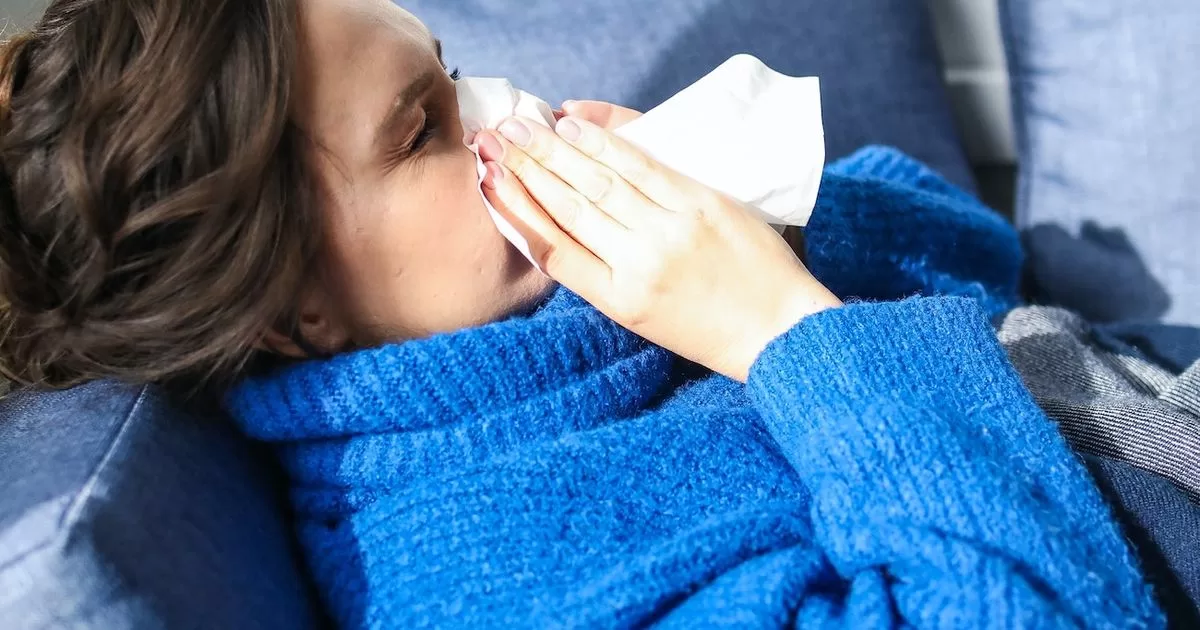Hospitals in South Florida have seen an increase in weekly admissions for these viral illnesses, but doctors say people do not seem to be suffering serious complications, with some exceptions, compared to the peak moments of the coronavirus pandemic. In any case, the number of patients remains relatively low in hospital centers.
However, since last December and still in the first days of January The highest peaks of respiratory conditions have been reported and, according to experts, the increase in cases is explained by the end-of-year festivities that brought together thousands of people in homes and other places. Health officials say the combination of viruses is putting pressure on some hospitals.
In late December, the Centers for Disease Control (CDC) reported a cumulative hospitalization rate of 22.3 per 100,000 people In U.S.A. In Florida, the impact was classified as “high,” unlike states like Minnesota, where it was “minimal.”
The reason for the increase
Flu season typically runs from November through April or May, with a significant peak between December and March. During this time, flu viruses are easily transmitted from person to person, usually through droplets from coughing or sneezing. During these festive periods, gatherings are a factor that promotes contagion.
To find out in more detail the reason for this increase in cases of respiratory tract diseases, DIARIO LAS AMÉRICAS consulted Dadilia Garcés, an epidemiologist at Miami Dade College, who said that the increase in people affected by these illnesses responds “to something “That is cyclical, and that always happens at the end of the year.”
But there are reasons to be “alert”, and it is because on this occasion three viruses have joined together (influenza, flu and RSV), which puts people with low immune defenses at high or moderate risk. In fact, these are the patients who are currently fighting the effects of these diseases or recovering in health institutions in South Florida, according to unofficial reports.
According to Dr. Garcés, we must consider that, during the fall and winter months, respiratory diseases tend to increase. “That is why it is always recommended that the population get vaccinated at the beginning of September or early October so that they are protected,” she stressed.
Furthermore, he said, “another event occurs and it is the mobilizations that begin on Thanksgiving Daywhen people come from other countries, but there is also internal mobilization, and this year we had a record of people traveling through airports, especially to reunite with their loved ones during the end-of-year festivities.”
Before COVID-19, a rebound in flu and RSV viruses was expected by doctors at this time; Now there are three threats. According to the specialist, RSV tends to be “more complicated” for children, especially those under six months of age, and adults over 65 years of age, while influenza can even be serious at all ages.
Influenza can also be very more risky in people who have a compromised immune system or who suffer from chronic heart or respiratory diseases, as is also the case with RSV, which mainly affects the lungs, according to the explanation.
Regarding COVID, a new strain of the disease, JN.1, and its parental variant, called BA.2.86, have caused the highest number of hospitalizations in the country for several months. Other variants of the coronavirus also had an impact in the first half of the year.
recommendations
There are two means to administer a flu vaccine. The most common comes in the form of an injection and, for those who can’t stand needles, there is a nasal spray. The nasal spray is only recommended for healthy people between 5 and 49 years old who are not pregnant. The flu vaccine does not protect against the common cold or other bacterial infections that can mimic flu symptoms.
In addition to vaccines, the doctor Garcés recommended that the community follow basic hygiene rules, such as frequent hand washing, covering the mouth with the elbow when coughing, and if the person is sick or suspects any respiratory viral symptoms, they should go to the doctor. In some cases, the use of a mask is also recommended.
“If symptoms begin to appear that are more severe, but are manageable at home, the person can drink hot drinks. If you get sick, you should not go to work sites,” she advised.
Different viruses
According to the CDC, each year in the country about 200,000 people are hospitalized with the flu, and almost 36,000 people die from the illness or related complications.
Influenza, flu, RSV and COVID-19 are respiratory viruses that can cause different symptoms and complications, depending on their type and severity.
Influenza is a virus that usually causes mild, cold-like symptoms.. It can cause a low fever, mild cough, nasal congestion, and sore throat. In some cases, it can cause pneumonia or bronchitis. Infants and older adults are more at risk for serious complications.
The flu is a virus that can cause high fever, muscle pain, headache, dry cough, sore throat and rhinitis. In some cases, it can cause pneumonia or respiratory failure.
In some cases, RSV can cause serious complications such as pneumonia or bronchiolitiswhich are inflammations of the lungs or lower respiratory tract
COVID-19 is the virus that causes an infectious disease that can cause high fever, dry cough, difficulty breathing, loss of smell or taste, and tiredness. In some cases, it can cause severe pneumonia or respiratory failure.
It is important that Miami-Dade worry due to the impact of respiratory diseases, and to take the necessary measures to prevent and control them. These viruses can negatively affect individual and collective health, as well as the economy and society.
(email protected)
@danielcastrope







